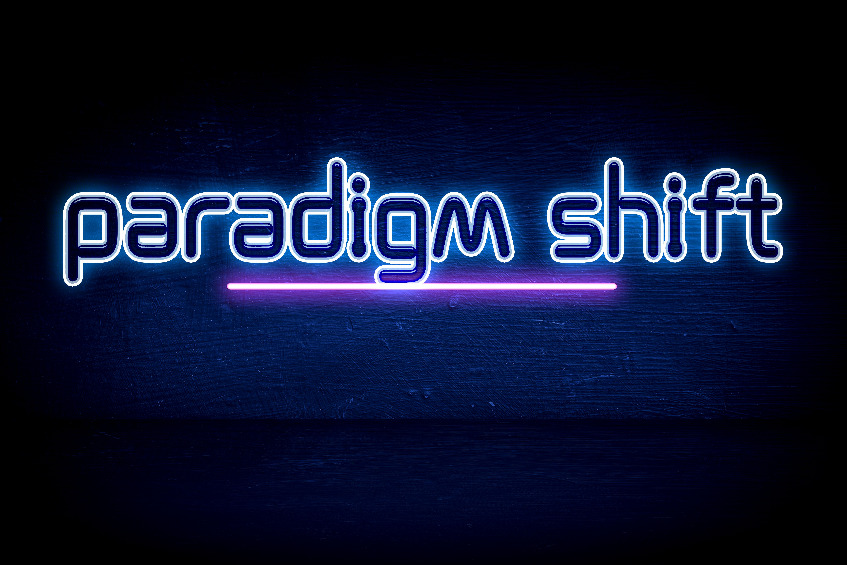
There has been a study published in Molecular Psychiatry, “The serotonin theory of depression: a systematic umbrella review of the evidence,” that debunked the chemical imbalance theory of depression. Wonder of wonders, it led to conversations in the general public about depression and the use of antidepressants. Was the theory just an urban legend, or is it just a shorthand explanation of how antidepressants work, “even if it’s not entirely accurate.” It also resulted in what seemed to be as much a personal attack to the lead author of the study, Joanna Moncrieff, by Rolling Stone: “Who Is the Psychiatrist Behind the Antidepressant Study Taking Over Right-Wing Media?”
She and the other researchers were ridiculed for doing an umbrella review of “outdated” studies. One professor of psychiatry was quoted as saying: “Wow, next she’ll tackle the discrediting of the black bile theory of depression.” The term originated in the humoral theory of Hippocratic medicine, where an excess of black bile was thought to result in a melancholic temperament and lead to symptoms of depression. This was the dominant theory for depression, or melancholia, from antiquity through the 19th century.
Responding to the Rolling Stone article on her blog, Moncrieff said ignoring her critique was no longer working. So, “champions of big Pharma and mainstream psychiatry have gone into attack mode.” In what she referred to a “a time-honoured tactic,” she described how Rolling Stone attempted to discredit her by associating her with the right-wing media coverage of their research.
The article accuses me of ‘promoting widely disputed beliefs about the dangers of various mental health interventions such as antidepressants or alternative forms of treatment’. This is not accurate. Most of the adverse effects I have highlighted in my research are widely recognised, and those that are less well-recognised (such as post SSRI sexual dysfunction- which is now recognised officially by the European Medicines Agency) have not been ‘widely disputed,’ or indeed disputed at all.
Psychiatric Times also used the black bile slur asking its physician readers what they would think if they saw the headline: “Depression Probably Not Caused by Excessive Black Bile.” The authors condescendingly said they believed that Moncrieff et al thought they were publishing something “extraordinarily newsworthy or controversial.” They concluded that “depression is a complex, heterogenous disorder with biological, psychological and sociological determinants and risk factors.” Placebo-controlled studies offered “ample evidence that serotonergic agents are safe and effective in the treatment of acute major depressive disorders.” They hoped that patients and clinicians were not deterred from using antidepressants by the review.
These ad hominem attacks were not the only coverage. On Point, a pod cast on NPR radio, featured Daniel Carlat, the chair of psychiatry at Melrose Wakefield Hospital, part of the TuftsMedicine network, Joanna Moncrieff and Anne Harrington, a professor of the history of science at Harvard University. The host for “Behind the new study changing how doctors view depression” noted while antidepressants work for some people, Pfizer and other pharmaceutical companies don’t know how they work to relieve depression symptoms, “especially SSRIs.” Meghna Chakrabarti said some studies show that as many as 85% of the public believe the chemical imbalance theory of depression. “People have been told for three decades now, that depression is due to a chemical imbalance, and that they need to take antidepressant treatment to put that imbalance right.”
The program explored the gap between what the medical community knows about antidepressants, what the public knows, and why that gap exists. Dr. Carlat said many of the studies reviewed by Moncrieff et al were ones he had read before he wrote his 2010 book, Unhinged: The Trouble with Psychiatry – a Doctor’s Revelations about a Profession in Crisis. He thought their study pulled the data together “in a nice way” that made it very clear: “People have been led to believe that there is a chemical imbalance theory of depression.” Listen to the 40-minute program to hear more from Dr. Carlat.
The overall message seems to be yes, the public believed there was a chemical imbalance theory of serotonin deficiency for depression, but that’s old news. Researchers and academic psychiatrists have never believed this urban legend. Nevertheless, antidepressants still work and are safe and effective, so don’t be deterred from using them. However, that effectiveness rate is only slightly better than a placebo in the clinical trials approved by the FDA. And that difference—around two points on the 52-point Hamilton D depression scale—is “clinically imperceptible.”
Marc Stone was the lead author of a new study published in the BMJ, the British Medical Journal, in August of 2022. He is the Deputy Director for Safety with the FDA. Irving Kirsch, the principal investigator, is the Associate Director of the Program in Placebo Studies at Harvard Medical School, noted for his work on placebo effects with antidepressants. See “Dirty Little Secret” and “Do No Harm with Antidepressants” for more on Kirsch’s work on antidepressants and placebos.
Stone et al again replicated the less-than-two-point difference between drug and placebo across all 73,388 participants. “We found a drug effect among adults equivalent to 1.82 points, with a standardized mean difference of .24.” The response distributions did not appear to be unimodal to the researchers. Further analysis of the data found the optimal model for drug and placebo responses was “a combination of three overlapping normal distributions,” which they referred to as Large responses, Minimal responses and Non-specific. About two thirds of participants had a Non-specific response; and about 15% had a substantial antidepressant effect.
Reviewing the BMJ study for Mad in America, Peter Simon said:
The drug and placebo groups both had extremely high rates of symptom improvement: 84.4% of the placebo group found their depression symptoms improved, while 88.5% of the drug group improved. However, in many cases, this “improvement” was small.
More important is the number of people who experienced a large improvement. This improvement is more likely to be clinically relevant. The researchers found that those taking the drug were more likely to experience this level of improvement—24.5% of the antidepressant group experienced large improvement, versus 9.6% of the placebo group.
Based on these numbers, there seems to be a small group—about 15% of people—who experience a large response to the drug who would not otherwise improve to this level.
Unfortunately, the researchers found no way to predict who, exactly, is in this 15%. They write that if everyone with a depression diagnosis is given an antidepressant, about seven people need to be given the drug (and thus be exposed to the harmful effects with no benefit) before one person benefits.
Only one in seven people who use antidepressants will notice a clear improvement and researchers can’t predict who those individuals will be. That means 85% of individuals using antidepressants will not have a clinically noticeable improvement. Stone et al said the effectiveness of all placebo-controlled antidepressant efficacy trials submitted to the FDA between 1979 and 2016 was 1.82 points on the HAMD17, ranging from 1.62 to 2.56. It is generally agreed that drug-placebo differences greater than 3 points are necessary for a clinician to detect a minimal improvement with a patient. See “Fighting or Fueling Suicide with Antidepressants?”
It doesn’t seem that placebo-controlled studies of antidepressants offer ample evidence that they are “safe and effective” in treating acute major depression. The findings and conclusions of “The serotonin theory of depression: a systematic umbrella review of the evidence” cannot be easily ignored or dismissed.
One final research article to consider is by Peter Sterling, a professor of Neuroscience at the Perelman School of Medicine, University of Pennsylvania. He is a self-described “hard core” neuroscientist. His article, “A Neuroscientist Evaluates the Standard Biological Model of Depression,” concluded that current evidence does not support the hypothesis that depression is “a localized, disordered neural circuit.” Neuroimaging cannot identify “the mental disturbance” we call depression; nor can it be predicted in individuals by analyzing their genetic makeup.
“Chemical imbalance” theories of depression have not been supported, thereby removing any scientific rationale for “antidepressant” drugs. The drugs are not specific but rather affect myriad neurotransmitter systems, offering little advantage for most individuals, but commonly causing long-term harm. The brain adapts to antidepressant drugs, just as it adapts to drugs of abuse, and so for both withdrawal can be extremely difficult.
Depression is far better predicted by levels of childhood trauma, life stress, and lack of social supports. Depression in individuals is significantly reduced by physical repairs to their depressed communities and by psychological repairs through shared experience of childhood trauma and chronic domestic abuse.
If researchers and academic psychiatrists never believed the chemical imbalance theory of depression, why weren’t they as assertive challenging this urban legend as they have been at minimizing the significance of “The serotonin theory of depression: a systematic umbrella review of the evidence?” Does an effectiveness rate of 15% with antidepressants justify 85%—6 of 7 who use them—receiving ineffective, marginally better treatment effectiveness than placebo? Supporters of the current paradigm of depression and its treatment dismiss or minimize evidence that challenges it. There needs to be a paradigm shift in how we think about depression and its treatment.





